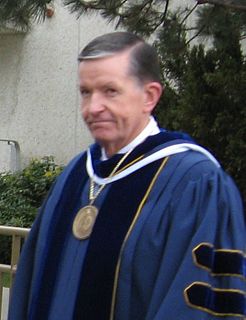A Quote by Johann Joachim Winckelmann
The only way for us to become great, or even inimitable if possible, is to imitate the Greeks.
Related Quotes
Science only means knowledge; and for [Greek] ancients it did only mean knowledge. Thus the favorite science of the Greeks was Astronomy, because it was as abstract as Algebra. ... We may say that the great Greek ideal was to have no use for useful things. The Slave was he who learned useful things; the Freeman was he who learned useless things. This still remains the ideal of many noble men of science, in the sense they do desire truth as the great Greeks desired it; and their attitude is an external protest against vulgarity of utilitarianism.
Healing of the physical without the change in the mental and spiritual aspects brings little real help to the individual in the end. How true, because the mind and the body imprint and imitate each other. What we think, we become. What we become, we think. It's an insidious process that can predispose us to illness or it can lead us to health.
Eratosthenes was the director of the great library of Alexandria, the Centre of science and learning in the ancient world. Aristotle had argued that humanity was divided into Greeks and everybody else, whom he called barbarians and that the Greeks should keep themselves racially pure. He thought it was fitting for the Greeks to enslave other peoples. But Erathosthenes criticized Aristotle for his blind chauvinism, he believed there was good and bad in every nation.
Each time the losses and deceptions of life teach us about impermanence, they bring us closer to the truth. When you fall from a great height, there is only one possible place to land: on the ground-the ground of truth. And if you have the understanding that comes from spiritual practice, then falling is in no way a disaster, but the discovery of an inner refuge.
I've had lots of discussions with my Muslim brothers and sisters who have said to me, "Christianity is a white man's religion" But I'm like, "how is that possible when Christianity went into Africa before it ever went into central Europe?" Even the first people to become a Christian nation were not Romans, they weren't the Byzantines either, they weren't the Greeks... the first people to claim a Christian empire were the Armenians.
Even as we do all that's necessary to ensure Israel's security, even as we are clear-eyed about the difficult challenges before us, and even as we pledge to stand by Israel through whatever tough days lie ahead, I hope we do not give up on that vision of peace. For if history teaches us anything, if the story of Israel teaches us anything, it is that with courage and resolve, progress is possible. Peace is possible.








































